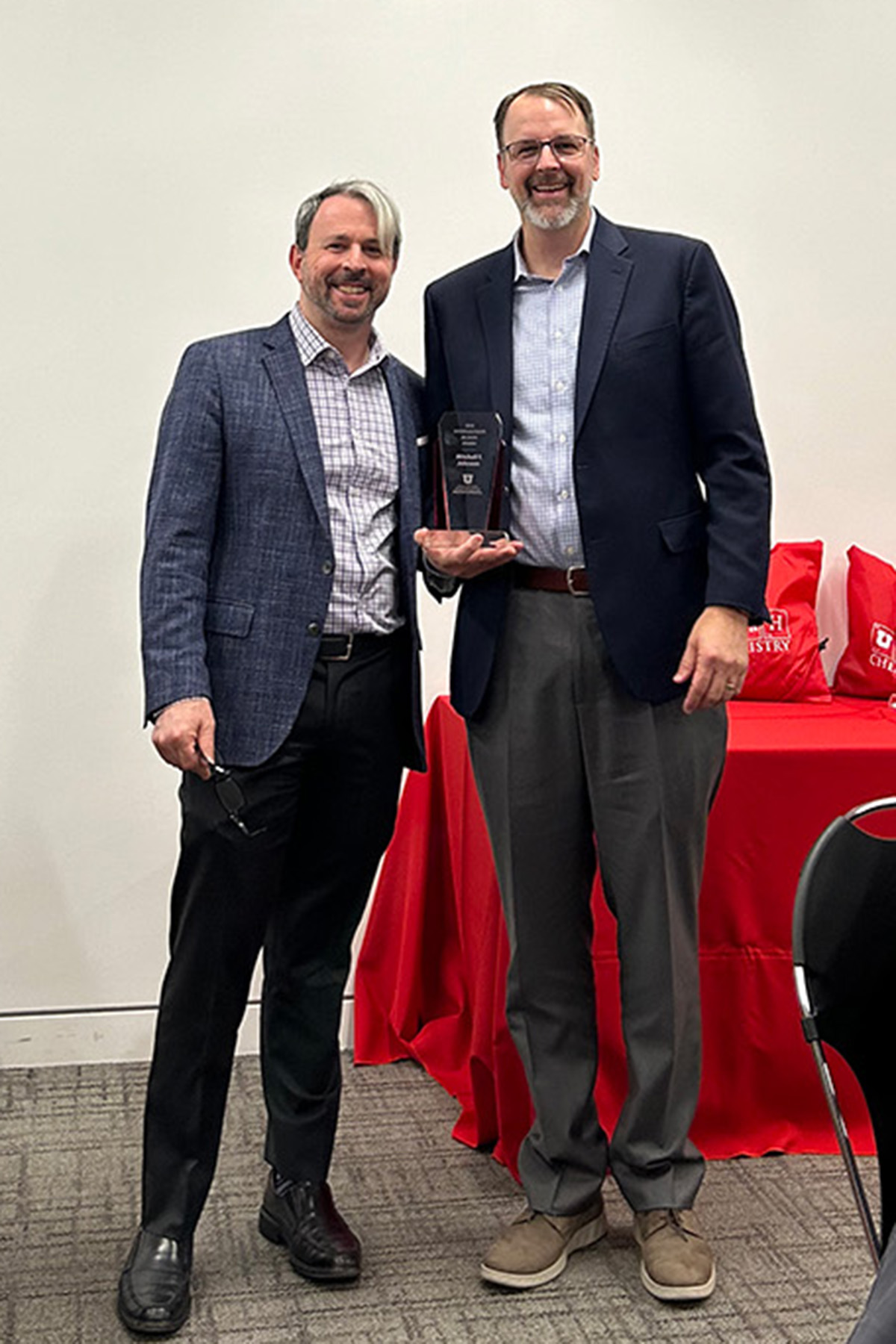
U Chemistry Distinguished Alumni Awards 2023

The Department of Chemistry at the University of Utah established the Distinguished Chemistry Alumni Awards in 2011 to recognize and honor our most prominent and successful alumni. We celebrated four of our outstanding alumni on October 23 and 24 in the Department of Chemistry. The awardees held seminars and visited faculty and students in the department. On October 23, during the awards dinner, they received a well-deserved award for their accomplishments and involvement with the department, faculty, and students.
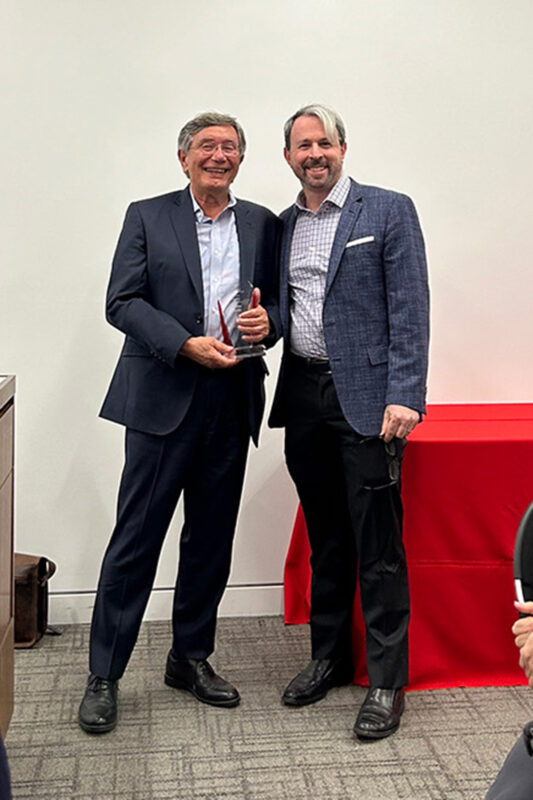
Zlatko Bačić
Zlatko Bačić was born in Pula, Croatia. He received his B.S. degree in chemistry from the University of Zagreb, Croatia, and a Ph.D. in theoretical chemistry from the University of Utah with Jack Simons in 1981. He spent the next several years as a research associate at throughout the world, with stops in Germany, Israel, and the US. Chicago (with John Light), and Los Alamos National Laboratory (with Russell T. Pack). In 1988, he joined the Department of Chemistry at NYU as an Assistant Professor, where he has remained ever since. In addition, he is the founding director of the new Simons Center for Computational Physical Chemistry at NYU, established in 2021. His research has focused on the rigorous quantum treatment of the dynamics and spectroscopy of noncovalently bound molecular complexes and nanoconfined light molecules, exhibiting large nuclear quantum effects. For his significant contributions to theoretical chemistry, he was elected a Fellow of the American Physical Society (in 2009) and the American Association for the Advancement of Science (in 2011). In 2013-2014, he was the Lady Davis Visiting Professor at the Technion in Haifa and the Joseph Meyerhoff Visiting Professor at the Weizmann Institute, Israel. Previously, he has held visiting professorships at ETH- in Zürich and MPI in Göttingen, Germany, among other leading academic centers.
Dr Bačić presentation from October 23 was titled Rigorous Quantum Calculations of Vibrational States of Fluxional Molecular Systems: Hydrogen-Bonded Molecular Trimers and Light-Molecule Endofullerenes.
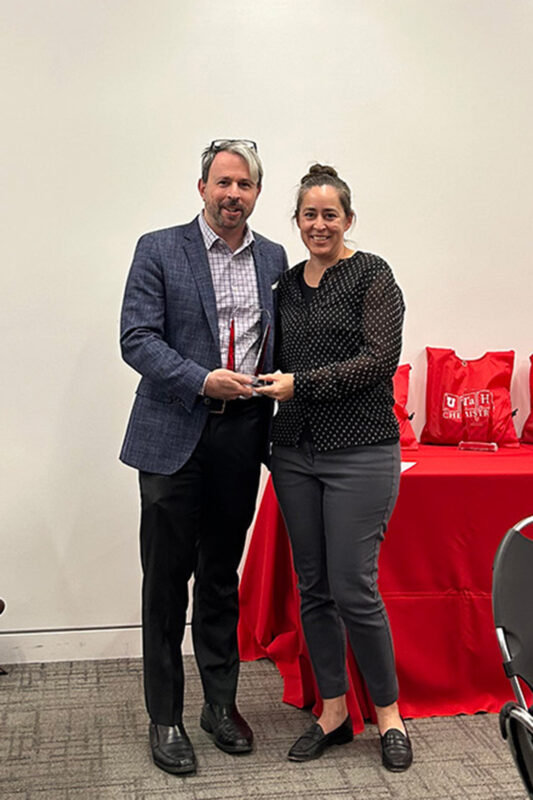
Dr. Amy M. Barrios
Dr. Amy M. Barrios graduated from the University of Utah with a bachelor’s degree in chemistry in 1995, supported by a scholarship from the Department. She earned a Ph.D. in inorganic chemistry from MIT in 2000 and was an NIH Postdoctoral Fellow at UC San Francisco. She started her independent career as a Gabilan Assistant Professor of Chemistry at the University of Southern California before returning to the University of Utah in 2007.
Dr. Barrios is a Professor in the Department of Medicinal Chemistry in the College of Pharmacy. She was awarded the University of Utah Presidential Scholar Award in 2016, the University of Utah Distinguished Mentor Award in 2019, and an Outstanding Undergraduate Research Mentor Award in 2023. She has been the Co-Director of the Medical School’s Women in Health, Medicine, and Science Program from 2015 to 2019. She is currently the Associate Dean for Postdoctoral Affairs at the University of Utah Graduate School.
Her Lab focuses on developing chemical tools to study the enzymes that regulate protein phosphorylation, a key regulator of many cellular signaling pathways, and takes a multidisciplinary approach to understanding the roles that protein phosphatase play in health and disease.
Dr. Barrios’s presentation was titled Amplifying Productive Signals: A Chemist’s Path Toward Understanding Phosphorylation-Dependent Cellular Signaling. Dr Barrios also discussed the importance of community, being an ally, and celebrating successes, among other essential things in our everyday work.

Mitchell Johnson
Mitchell Johnson is the President, CEO, and Chairman of the Board of General Plastics Manufacturing Company and is responsible for developing the company’s strategic growth platforms, including new product development. Johnson earned his doctorate from the University of Utah Department of Chemistry with Joel Miller. He pursued post-doctoral studies at Los Alamos National Laboratory, where he studied organometallic and lanthanide chemistry. Before joining General Plastics Manufacturing in 2008 he worked at 3M Company, where he was a Product Development Specialist inventing formulations to replace C8-fluorinated materials, anti-microbial articles, and coatings. His recent roles at General Plastics have included Senior Technical Director, VP of Materials Technology, Executive Vice President, and, in 2017, President and CEO of the company. He led the development and commercialization of the first metal and halogen-free polyurethane-based rigid cellular plastic material to meet stringent FAA flammability and customer performance requirements. During the past five years, he has reduced the company’s reliance on its legacy products and broadened its product portfolio to deliver new products to meet performance and regulatory requirements for the future.
Mitchell Johnson’s presentation was called Organometallics, Coatings, and Cellular Plastics: A Career of Continuous Learning, where he discussed the challenges and opportunities in a continuously changing market.
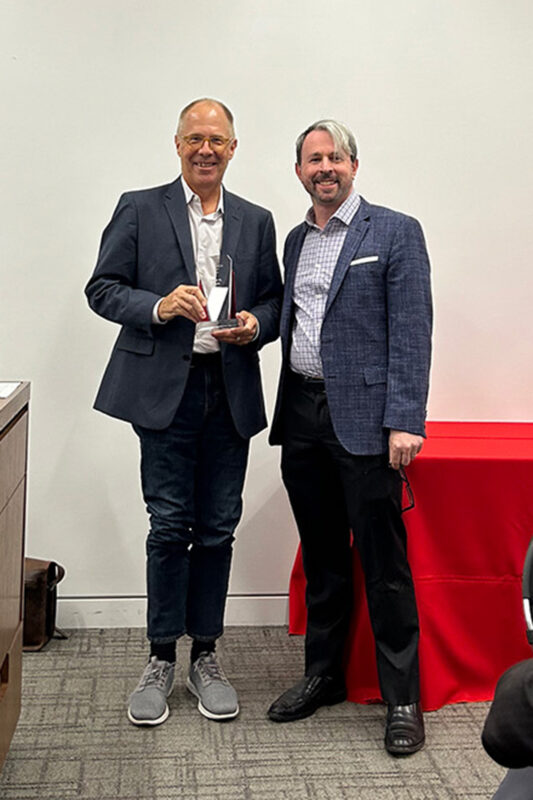
Roger Leach
Roger Leach enjoyed success throughout his 36-year career at DuPont Company, joining the firm immediately after completing his Ph.D. from the University of Utah Department of Chemistry in 1984 with Joel Harris. His first position was as an analytical scientist at DuPont’s Textile Fibers R&D, where he supported the development and commercialization of Stainmaster TM nylon carpet technology. This product garnered more than $1 billion in profit over its lifetime.
After this time, Roger moved to Virginia to lead an R&D analytical group to implement process measurement and control strategies during the rapid expansion of global Lycra® spandex fiber manufacturing. He returned to DuPont Corporate R&D in Wilmington in 1991, where his technical contributions were primarily focused on polymer analyses, especially in understanding polymer structure, property, and process relationships in synthetic textile fibers. In 2000, Roger shifted into DuPont’s Corporate Center for Analytical Science management roles. Over the next 15 years, he led technical groups focused on surface science, spectroscopy, and materials science. He helped establish and then led DuPont’s collaborative programs to access synchrotron x-ray and neutron experimental capabilities at national laboratory user facilities. This grew into a 20-year collaboration among Northwestern University, Dow Chemical Company, and DuPont to build and operate experimental x-ray beamlines at the Argonne National Lab Advanced Photon Source (APS) to develop commercially relevant materials using cutting-edge analytical tools. In addition, Roger served four years on the APS Science Advisory Board and as a program reviewer for the NIST Center for Neutron Research.
Roger navigated many new technology challenges during his DuPont management career and major business shifts. He helped redefine DuPont’s analytical science needs as it entered into bio-derived chemistry, solar cell, and semiconductor technologies, and the overall “globalization” of DuPont’s business to better serve emerging economies. As DuPont R&D was decentralizing, Roger led the development of analytical capabilities in major new R&D centers in China and India. He oversaw analytical chemistry teams in regional labs in Taiwan, Japan, and European sites. These efforts led to Roger’s appointment as the Director of Corporate Analytical Sciences for the entire DuPont organization. When DuPont and Dow merged in 2016, Roger was on the leadership team that reorganized the combined analytical chemistry resources into three stand-alone companies that emerged in 2019: Dow, DuPont, and Corteva Agrisciences. Roger served as DuPont’s Director of the Core Analytical Sciences organization, supporting all DuPont global businesses until his retirement in early 2021.
After relocating to the San Diego area, Roger “failed” retirement by joining Viridos, a young biotech company in La Jolla. Viridos is developing genomically engineered, industry-leading algal strains as lipid feedstock for second-generation renewable diesel and aviation biofuels. Roger serves as their Director of Analytical Sciences, which allows him to use his technical skills.
In his seminar, Roger Leach talked about Perspectives on the Evolution of Analytical Sciences in the Chemical Industry and focused on products, career changes, and new initiatives.
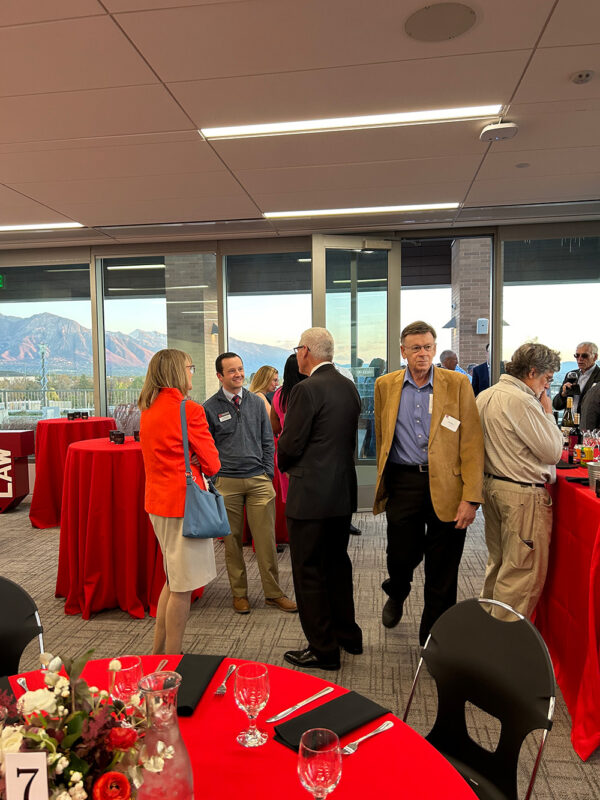 |
 |
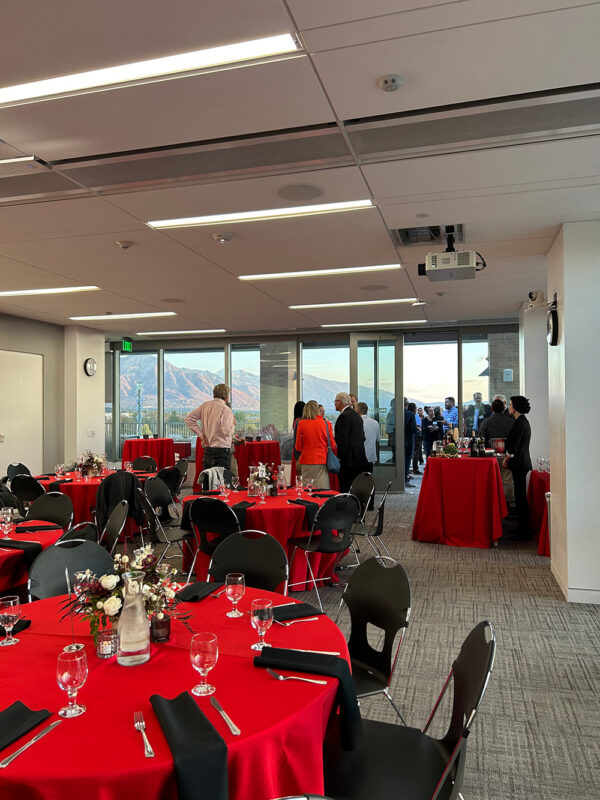 |
